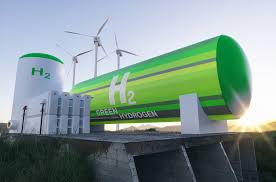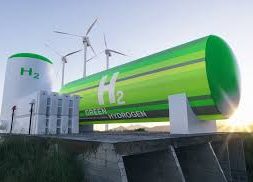
In Short : Punjab holds immense renewable energy potential but remains largely untapped due to policy and regulatory gaps. Experts emphasize that stronger policy support, financial incentives, and streamlined approvals are essential to accelerate solar and biomass adoption. With the right framework, Punjab could reduce dependence on conventional power, boost rural incomes, and emerge as a renewable energy leader in North India.
In Detail : Punjab has abundant renewable energy potential, particularly in solar and biomass, yet the sector remains underutilized. Experts highlight that despite favorable conditions, growth has been slow compared to other states. The lack of robust policy measures and timely approvals has restricted the pace of renewable energy adoption in the state.
The state government has shown interest in promoting clean energy, but execution challenges persist. Delays in project clearances, inconsistent policy frameworks, and financing barriers often discourage investors. Addressing these issues could help Punjab realize its renewable ambitions. A comprehensive roadmap is necessary to bridge the existing policy gaps.
Industry leaders believe that Punjab could emerge as a significant hub for solar energy generation. The state has ample rooftop and ground-mount potential, along with agricultural land suitable for biomass energy. Harnessing these resources can not only enhance energy security but also reduce carbon emissions.
The agricultural economy of Punjab offers unique opportunities for biomass-based projects. Crop residue, often burned and contributing to pollution, can be converted into clean energy. Encouraging biomass utilization could help tackle stubble burning while also creating new income streams for farmers.
Experts also stress the importance of decentralised solar adoption across the state. Rooftop solar systems for homes, schools, and industries could significantly reduce grid dependence. Such models can support Punjab’s growing energy demand while cutting down on fossil fuel use.
Policy reforms and financial incentives are crucial to unlock this potential. Streamlined approval processes, transparent tariff mechanisms, and investor-friendly guidelines could boost private participation. States like Gujarat and Rajasthan have set strong examples that Punjab could follow.
The central government’s renewable energy targets also create opportunities for Punjab. By aligning state policies with national goals, Punjab can attract more investments. This alignment could accelerate capacity additions and position the state as a clean energy frontrunner.
Renewable energy development in Punjab will also create socio-economic benefits. Apart from reducing emissions, the sector can generate employment in manufacturing, installation, and maintenance. This will benefit rural communities and strengthen the local economy.
With the right policy push, Punjab can tap into its vast untapped renewable reserves. Stronger collaboration between the government, industry, and farmers will be key to success. Unlocking this potential could not only make Punjab energy-sufficient but also a leader in India’s renewable energy journey.












